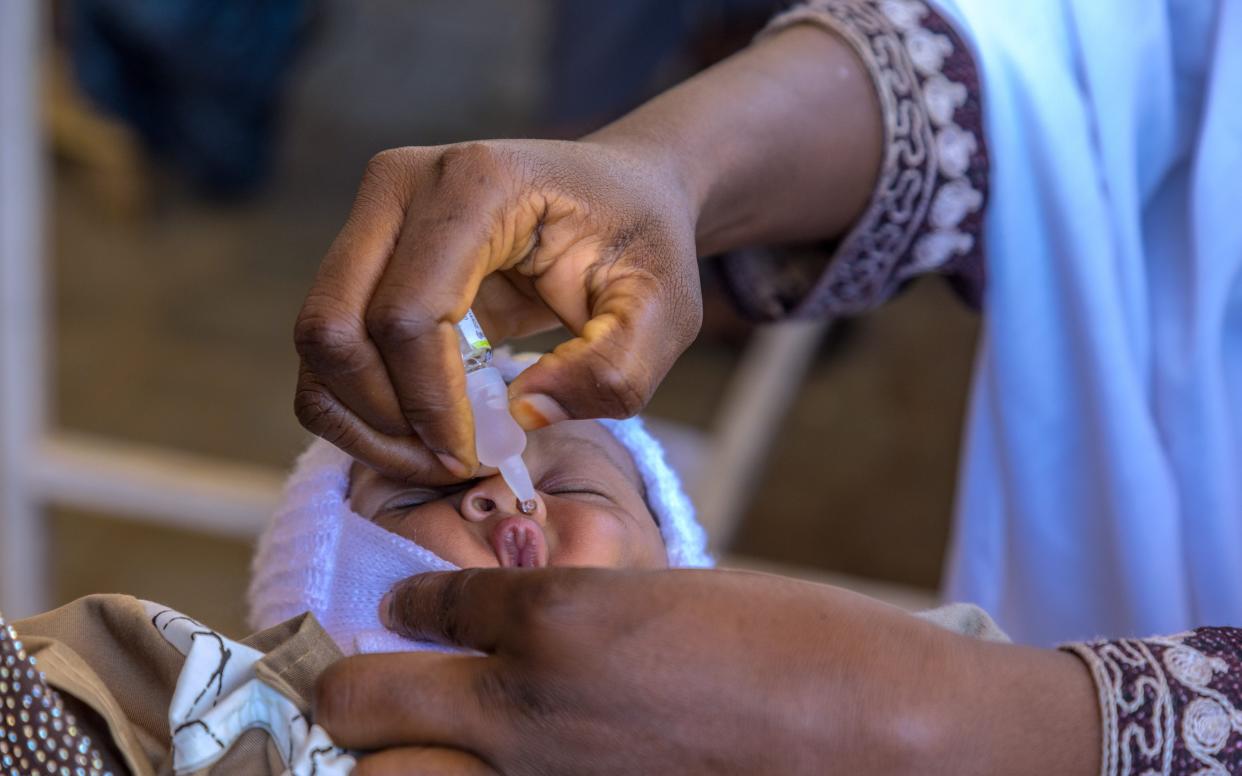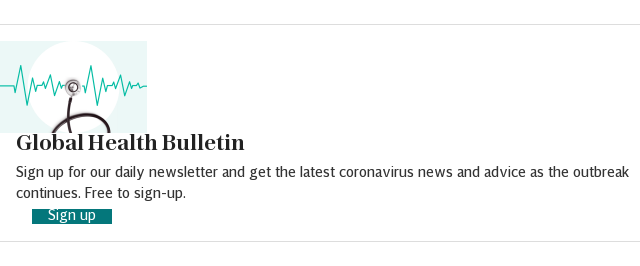Africa set to be declared polio free as Nigeria marks three years without the disease

Nigeria is set to mark three years since it saw its last case of polio – an important landmark on the road to official eradication of this deadly childhood disease.
Nigeria is the last country in Africa to record wild poliovirus infections, but if no more cases are found in the next few months the whole continent could soon be declared polio free.
Wiping out the disease in Africa is a huge milestone as there were still around 20,000 cases every year at the beginning of the millennium.
The last reservoir of the disease was the conflict-riven Borno State in north eastern Nigeria, where the presence of militant group Boko Haram prevented health workers from getting out to vaccinate children – the only way to eradicate polio.
Dr Tunji Funsho, chairman of Nigeria’s polio committee for Rotary International, said that the liberation of the area from Boko Haram had been key to ensuring no new cases of polio surfaced.
"The challenge was in the north east, particularly in Borno State, but in the last three years we have been able to access more than 90 per cent of children that we were not able to access in 2016," he said.

Three years ago 600,000 children under the age of five missed out on vaccination, compared to 60,000 today, he said.
"Even in the areas where we cannot easily access the children we have eyes on the ground to detect cases of acute flaccid paralysis [a key symptom of polio] and samples can be taken and sent to the appropriate lab.
"These inaccessible children are scattered across a wide geographical area, which would not be able to sustain circulation of wild poliovirus. However, that does not preclude us from trying to get to these children," he said.
Since Nigeria’s last case of the disease in 2016, the government has implemented more than a dozen extra vaccination campaigns and improved surveillance and routine immunisation.
It has conducted satellite imaging of isolated communities on hundreds of islands on Lake Chad to work out which are inhabited. Vaccinators have also set up clinics in markets and at border posts to try and catch all unvaccinated children.
But while outbreaks of wild poliovirus have been wiped out there are still cases of the vaccine-derived poliovirus – a rare form of the virus that only arises in under-immunised communities.
There have been 53 of these cases of this form of the virus globally so far this year, compared to 50 in the whole of 2018. The largest number of cases has been in Democratic Republic of Congo.
To begin the process of certifying the continent polio free a team of independent scientists will examine data from all 47 countries to look for a sign of an overlooked case or gap in surveillance.

Dr Pascal Mkanda, head of polio for the World Health Organization Africa region, said the process would take some time and would not be complete until next year at the earliest.
He added: "This is a great milestone and achievement. It will give encouragement and a confidence boost to other programmes - if polio, a huge public health problem, can be eradicated it will show that some of the other problems we have in Africa can be dealt with too."
He added that other disease programmes could learn from the fight against polio.
"One of the important things we have learned is how to mobilise communities and populations to ensure that they are committed to a particular health issue," he said.
With Nigeria reaching this important milestone there are now just two countries in the world where the disease is still endemic – Pakistan and Afghanistan.
Afghanistan has made great strides in eliminating the disease with just 14 cases this year. However, there has been a resurgence in Pakistan where there have been 53 cases of the disease so far this year, compared to just 12 last year.
A poor security situation in Pakistan has hampered eradication efforts and three vaccinators were shot in April.

Areview of progress against the disease, commissioned by the Global Polio Eradication Initiative in 2018, said “access limitations due to insecurity continue to represent the biggest threat to polio eradication and progress towards interrupting transmission has stalled".
Dr Michel Zaffran, director of polio eradication at the WHO, told the Telegraph earlier this year that as the number of cases was declining it was harder to persuade people of the importance of vaccination.
“Parents are saying why do you keep coming to my house when there is no polio here and we have no water or sanitation and my children are falling sick with measles and other diseases,” he said.
Dr Funsho said it was vital now to guard against any sense of complacency - polio vaccination efforts have to continue as before.
"The challenge now is to make all those who are concerned about polio - the government at every level, partners and donor agencies and countries - to appreciate that the job is just going into another phase. It has not ended.
"The race is not about getting to this milestone. The race to about getting to the child with the vaccine before the virus gets to the child," he said.
Protect yourself and your family by learning more about Global Health Security

 Yahoo News
Yahoo News 
